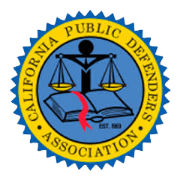
California Penal Code 1473.7 Early Convictions. This phrase might stir up many emotions: hope, confusion, and maybe even fear. Let’s simplify this legal concept in plain English, without the jargon, because understanding the law can feel overwhelming. PC 1473.7 offers a glimmer of hope for individuals seeking a second chance by potentially vacating judgments.
Before we jump into specifics, remember that this information is for educational purposes only and not legal advice. Seeking guidance from a qualified criminal defense attorney for advice tailored to your situation is essential. However, this blog will help you grasp the basics of PC 1473.7 so you can speak with your attorney confidently.
Table of Contents:
- What Exactly Is California Penal Code 1473.7?
- Time Matters: Filing Your Motion
- What If the Court Approves Your PC 1473.7 Motion?
- Understanding Vacating Vs. Expungement
- Conclusion
What Exactly Is California Penal Code 1473.7?
Imagine a past conviction overshadowing your life, hindering opportunities, and even causing immigration issues. It feels like an unerasable stain. Enacted in 2017, PC 1473.7 allows someone no longer in custody to petition the court to vacate a conviction or sentence under specific circumstances.
Newly Discovered Evidence: Proof of Innocence
This applies if new evidence surfaces after the conviction that firmly points to your innocence. For instance, a case solved years later using new DNA technology might fall under this category. If you are struggling with a conviction and have reason to believe there’s evidence proving your innocence, a PC 1473.7 motion could be your saving grace.
Prejudicial Error: Your Right to Fair Defense Was Harmed
What if you didn’t receive adequate legal representation due to a significant mistake during your original trial? Imagine your lawyer didn’t fully inform you about the potential adverse immigration consequences of pleading guilty, and that lack of knowledge led you to make a decision you wouldn’t have otherwise. That could be grounds for prejudicial error.
You must demonstrate this mistake harmed your defense and your understanding of the conviction’s implications. This includes not being made aware of potential adverse immigration consequences, which could have affected your decision to accept a plea bargain.
Time Matters: Filing Your Motion
Timing is critical for any legal motion, including California Penal Code 1473.7 Early Convictions. This means acting swiftly after learning about the supporting evidence. Let’s say you discover new evidence supporting your PC 1473.7 motion. You must take action immediately.
For motions based on prejudicial errors, you can file anytime, as long as you are not in criminal custody or under any form of supervision for that conviction. However, if your motion relies on newly discovered evidence or concerns immigration status issues, the clock starts ticking differently. According to a legal resource provided by the California Lawyers Association, “reasonable diligence” is essential.
“Reasonable diligence” means “don’t procrastinate.” You must file once you have the knowledge to do so. PC 1473.7 provides an avenue to address convictions that have unfair or harmful consequences, especially for immigrants facing deportation.
What If the Court Approves Your PC 1473.7 Motion?
This is the ideal outcome, right? The court vacates the conviction—it’s erased as if it never happened. However, this doesn’t automatically clear you of all charges, as the original case would remain open. This means the original charges don’t simply vanish.
Instead, you and the prosecution would need to find a new resolution, like withdrawing a guilty plea and proceeding to a fresh trial. You may also negotiate a new plea that reduces the negative consequences, especially concerning immigration law matters. The good news is that credit for any time already served would still apply.
Understanding Vacating Vs. Expungement
These terms sound alike, but a key difference exists. California Penal Code 1473.7 Early Convictions often involves vacating a conviction. Expungement is a separate process governed by Penal Code 1203.4. It’s meant for convictions resulting from a guilty plea or completing probation.
If the court grants an expungement, it closes the case and removes the conviction from your record. Consider this: Imagine receiving a notice to appear before an immigration court, with that old conviction jeopardizing your status in the United States.
Cases like this illustrate why understanding the nuances of PC 1473.7 is essential, so seeking expert legal guidance is crucial. For those grappling with the lasting impact of a past criminal conviction, exploring the possibility of vacating a judgment under Penal Code 1473.7 could be a step toward a more hopeful future.
Conclusion
California Penal Code 1473.7 Early Convictions isn’t about getting a free pass. It’s a legal resource offering a pathway for those burdened by a past conviction to potentially alleviate its negative impacts, especially those with immigration concerns. You might have more options than you realize.
With the proper knowledge and legal help, a more optimistic outlook becomes possible. While PC 1473.7 offers a lifeline for those previously convicted, always seek legal advice from a qualified attorney. It’s essential to approach this complex area of criminal law with knowledge, a realistic perspective, and strong legal representation.





